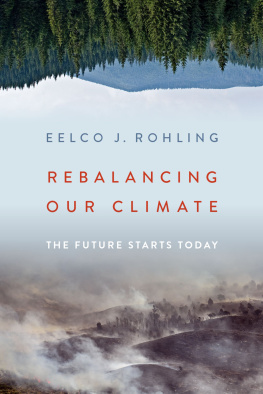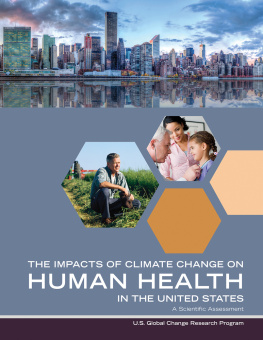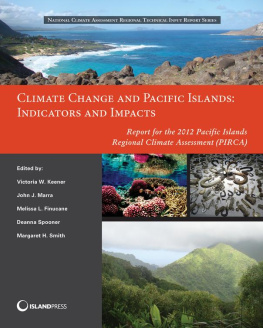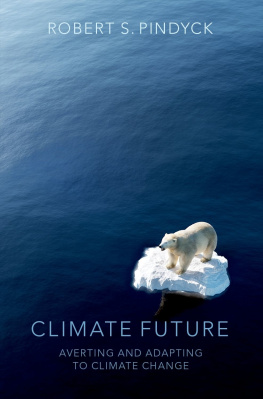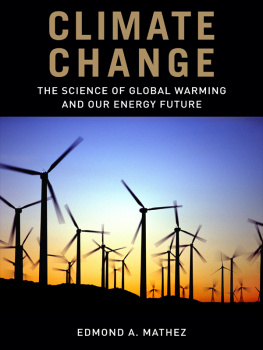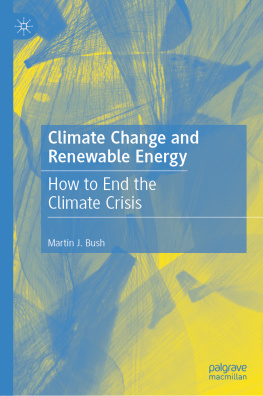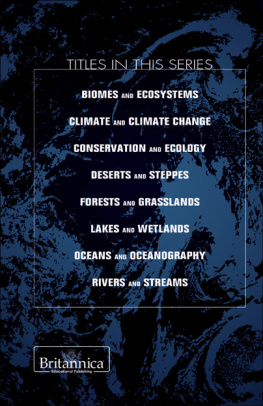Rebalancing Our Climate

Oxford University Press is a department of the University of Oxford. It furthers the Universitys objective of excellence in research, scholarship, and education by publishing worldwide. Oxford is a registered trade mark of Oxford University Press in the UK and certain other countries.
Published in the United States of America by Oxford University Press
198 Madison Avenue, New York, NY 10016, United States of America.
Oxford University Press 2022
All rights reserved. No part of this publication may be reproduced, stored in a retrieval system, or transmitted, in any form or by any means, without the prior permission in writing of Oxford University Press, or as expressly permitted by law, by license, or under terms agreed with the appropriate reproduction rights organization. Inquiries concerning reproduction outside the scope of the above should be sent to the Rights Department, Oxford University Press, at the address above.
You must not circulate this work in any other form and you must impose this same condition on any acquirer.
Library of Congress Cataloging-in-Publication Data
Names: Rohling, Eelco J., author.
Title: Rebalancing our climate : the future starts today / Eelco J. Rohling.
Description: New York, NY, United States of America : Oxford University Press, [2022] |
Includes bibliographical references and index.
Identifiers: LCCN 2021009734 | ISBN 9780197502556 (hb) |
ISBN 9780197502570 (epub) | ISBN 9780197502587
Subjects: LCSH: Climate change mitigation.
Classification: LCC TD171.75 .R64 2022 | DDC 363.738/746dc23
LC record available at https://lccn.loc.gov/2021009734
DOI: 10.1093/oso/9780197502556.001.0001
To the next generations that they may prosper sustainably
Contents
This book was written intermittently between August 2019 and October 2020. The entire period overlapped with convalescence following an ankle-repair operation, followed by Australias terrifying bushfire season, and then the coronavirus pandemic. It was an eventful time, with one clear common denominator: lots of working from home. I thank my family for support and for tolerating my reduced participation in regular family life, and my parents and brother for supporting all the choices I have made, no matter how irrational they may have seemed at the time. I gratefully acknowledge support and advice from my fellow climate-solutions enthusiasts, Henry Adams, David Beerling, Justin Borevitz, Aurore Chow, Kerryn Brent, Phil Boyd, Wolfram Buss, Pep Canadell, Rebecca Colvin, Steve Eggins, Michael Ellwood, Jim Hansen, Will Howard, Andy Lenton, Adrienne Nicotra, Jan McDonald, Jeff McGee, Cameron ONeill, and Kirsty Yeates. I am grateful to countless colleagues and friends for discussions and collaborations over the years that helped shape my views across a wide range of ocean and climate research, notably: Ayako Abe-Uchi, Sheldon Bacon, Edouard Bard, Andre Berger, Henk and Dan Brinkhuis, Wally Broecker, Harry Bryden, Ken Caldeira, Tom Chalk, Peter Clark, Rob DeConto, Michel Crucifix, Jerry Dickens, Harry Elderfield, Fabio Florindo, Gavin Foster, Simone Galeotti, Tom Gernon, Phil Goodwin, Katharine Grant, Ivan Haigh, Julia Hargreaves, Gabi Hegerl, Jorijntje Henderiks, Dave Heslop, Anna von der Heydt, Fiona Hibbert, Matt Huber, Peter Huybers, Peter Khler, Gert de Lange, Juan Cruz Larrasoaa, Gordon Lister, Lucas Lourens, Dan Lunt, Gianluca Marino, Valerie Masson-Delmotte, Paul Mayewski, Taryn Noble, Joe Ortiz, Bette Otto-Bliesner, Heiko Plike, Gert-Jan Reichart, Andrew Roberts, Laura Rodrguez-Sanz, Gavin Schmidt, Nick Shackleton, John Shepherd, Steven Sherwood, Mark Siddall, Appy Sluijs, Axel Timmermann, Paul Valdes, Bert Vermeersen, Roderik van de Wal, Felicity Williams, Jimin Yu, Jan-Willem Zachariasse, Jim Zachos, and Richard Zeebe. I thank Caroline Dycke for extensive help with conveying the message without drowning it in technical detail; Larisa V. Medenis for much-needed help with illustrations; Henry Adams, Tom Goreau, and John Shepherd for providing super-constructive reviews of the first complete draft; David Orr and an anonymous reviewer for support and suggestions to the initial book proposal as well as the final manuscript; and Jeremy Lewis for managing the project at Oxford University Press.
For much of the time I was writing this book in Canberra, Australia, during our summer of 20192020, bushfires raged throughout the country. Great swaths of forest were burned, including temperate rainforests. Smoke caused cities in Australia to rank as the most polluted in the world, by some margin. In the end, more than 12 million hectares had been burned, most of which was native forest and woodland that supported unique ecosystems, along with vast tracts of private land, including agricultural assets.
More than 1 billion or more mammals, birds, and reptiles were lost, along with innumerable bats, frogs, and insects and other invertebrates (), and new fires were still appearing through the end of February.
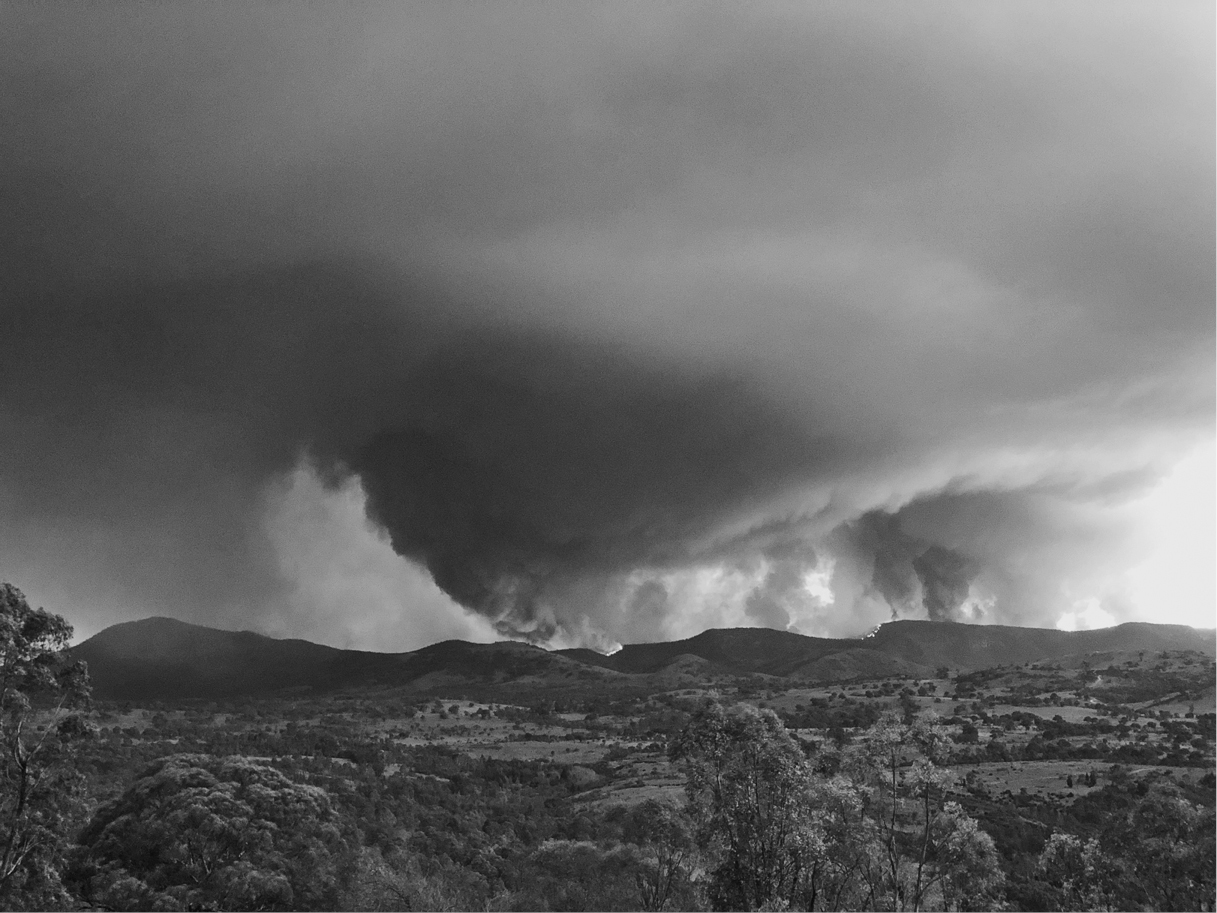
Figure P.1 The Orroral Fire in Namadgi National Park to the southwest of Canberra, which came within about 13 km of the authors house (January 28, 2020). Eventually, a shift in the wind direction, followed a week later by heavy rains, allowed the fire services to slowly gain control and extinguish the blaze through February 2020.
Source: Photo by the author from just outside his back garden.
At the end of January 2020, a major new fire developed that rapidly closed in on Canberra, the nations capital and home to about 400,000 people (). The most immediate threat was to properties on the citys outskirts, like mine, which backs onto a nature reserve with nothing other than woodland between us and the fire front. But the Canberra fires of 2003 demonstrated that fire can easily penetrate deep into the citys heart. Conditions this time were perilously similar. Fortunately, history was not repeated because a change in the winds, and some heavy rains a week later, allowed the fire services to gain the upper hand.
Why did this unprecedented fire season happen? Fundamentally, the 20192020 bushfire crisis was a weather-driven event, underpinned by years of warming and drying [because of climate change] ().
While individual fires cannot be attributed to climate change because there is a range of underlying causes (). Unfortunately, similar arguments made the media frequently another time in 2020, with the September bushfire catastrophe in the western United States.
The bushfire crisis made headline news around the world for several months and intensified the international public cry for action to curb climate change. Unfortunately, it may be impossible on short timescales to stop ongoing and looming fire crises in Australia and elsewhere, including the west coast of the United States, Siberia, Mediterranean countries, and countless other places. But on timescales of decades, something can certainly be done about the underlying drivers:
Global warming is related to the total amount of greenhouse gases accumulated in the atmosphere. Even without any new emissions, the legacy of already accumulated global emissions would maintain temperature where it is now. Worse, some additional year-on-year warming would continue because of slow responses in the climate system. To reverse the warming trend, a large net drawdown of carbon dioxide from the atmosphere is needed. Bringing this to the scale required is

